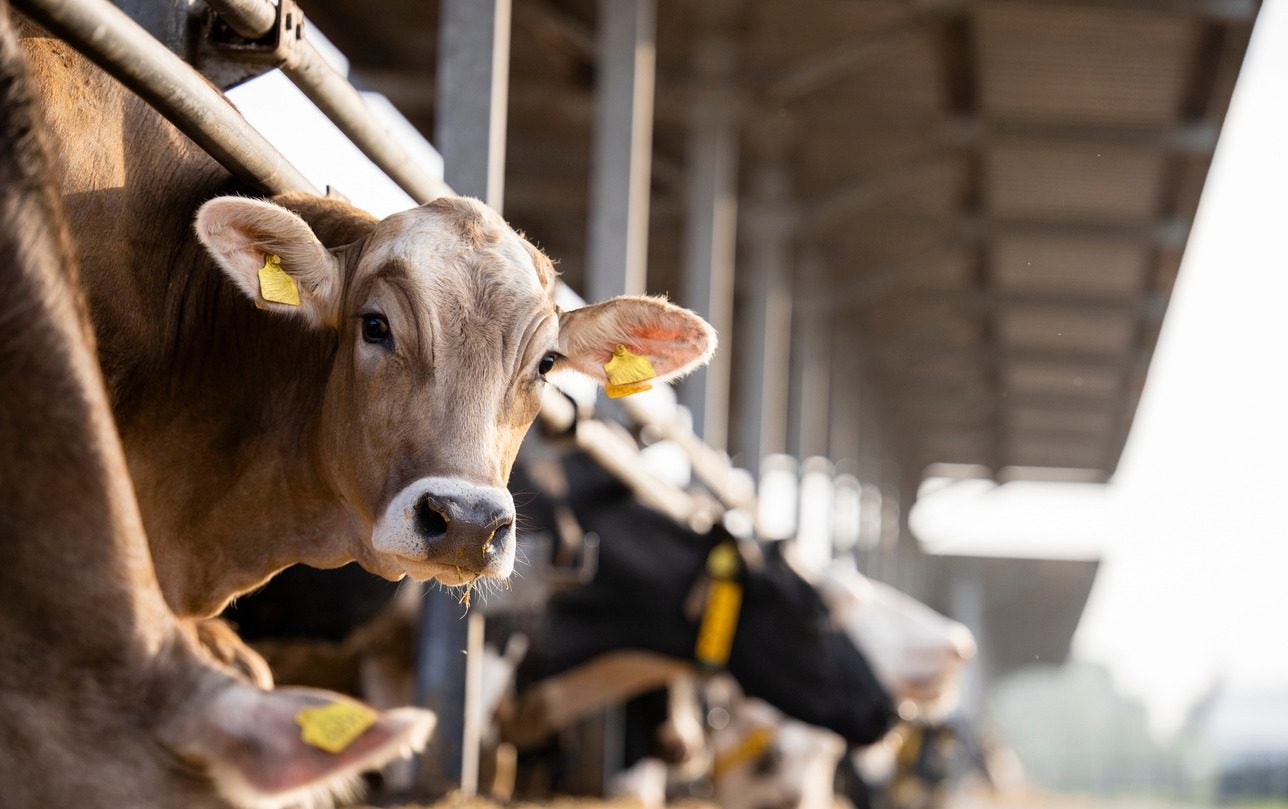
Environmental campaign group Greenpeace International is calling for big meat and dairy companies to do more to tackle methane emissions.
The plea from the Netherlands-based group comes as a new report from its Greenpeace Nordic arm claimed the estimated methane emissions of the meat and dairy companies it analysed rival those of the world’s biggest corporations in the fossil fuel sector.
According to the report, Turning down the heat: Pulling the climate emergency brake on big meat and dairy, the estimated methane emissions of five of the largest meat and dairy companies when added together – JBS, Marfrig, Minerva, Cargill and Dairy Farmers of America – exceed the combined reported methane emissions of five big fossil fuel giants: ExxonMobil, Shell, Total Energies, Chevron and BP.
Greenpeace said “nearly 80%” of agricultural methane comes from the digestion process of ruminants and from the manure of all livestock, including pigs and poultry. About 20% of the remaining emissions come from rice cultivation, it added.
On a more positive note, Greenpeace suggests changes to the way these food businesses operate could dramatically slow down global heating this decade.
It suggests there is a pathway to slowing down climate heating “within our lifetime” with a move away from “industrial meat and dairy production [and] increasing plant-based food”.
Access the most comprehensive Company Profiles
on the market, powered by GlobalData. Save hours of research. Gain competitive edge.

Company Profile – free
sample
Your download email will arrive shortly
We are confident about the
unique
quality of our Company Profiles. However, we want you to make the most
beneficial
decision for your business, so we offer a free sample that you can download by
submitting the below form
By GlobalData
Greenpeace said: “Systematic changes in production and consumption in high- and mid-income countries could provide a significant cooling effect by 2050, with some positive results already by 2030.”
It added: “In contrast, if left unregulated, the meat and dairy sector alone is projected to heat up the world by an additional 0.32°C by 2050. These new projections are based on United Nations Food and Agriculture Organization’s (FAO) scenario for a business-as-usual pathway for food and agriculture to 2050.”
The Greenpeace report projects a cooling effect of 0.12°C by 2050 with a shift in meat and dairy over-production and over-consumption. This would amount to a 37% reduction of the anticipated mid-century heating of 0.32°C from meat and dairy alone, under projected business-as-usual production and consumption.
“Even a fraction of a degree of warming prevented would reduce significant harmful impacts. For instance, each 0.3°C projected warming prevented by the end of the century could reduce exposure to extreme heat for 410 million people,” it said.
Shefali Sharma, senior agriculture campaigner for Greenpeace Nordic, said: “For so long, we have tiptoed around big meat and dairy companies and their unfettered growth as if they are somehow exempt from making the drastic changes required of everyone else on this planet.
“It’s always either the farmer or the consumer who has to change, while these companies decide what farmers grow, what they are paid and what we eat. We have shown that the pathway is clear.”
Just Food asked the five meat and dairy businesses mentioned in the report for their response to its findings, outside of US and Brazilian office hours.
A JBS spokesperson said: “JBS was not granted prior access to the report, which would have provided awareness concerning the methodology used to compare emissions from fossil fuels with those from food production. This comparison is totally inappropriate.
“Numerous studies have demonstrated that agriculture and livestock farming can not only provide for necessary food production but also play a significant role in reducing emissions and capturing greenhouse gases (GHG) from the atmosphere through practices such as enhancing soil management, improving production efficiency and maintaining zero deforestation.”
In JBS’ 2023 sustainability report, the company does not detail specific figures on the methane emissions from its value chain. The group says it is working on “incorporating high-quality forages and feed additives” into animals’ diets.
At Cargill, the US agri-food giant claims it has developed a “nutritional solution that can lower methane emissions by up to 10% while maintaining animal productivity and performance”.
Last November, Dairy Farmers of America announced it had received funding to take part in a pilot project to reduce methane emissions on its dairy farms.
At COP28, General Mills, Kraft Heinz, Bel Group, Danone, Nestlé and the US division of France-based dairy major Lactalis, all committed to report on their methane emissions, and then collaborate on plans to reduce them. Danone has set a 30% methane reduction target for its fresh milk supply.

